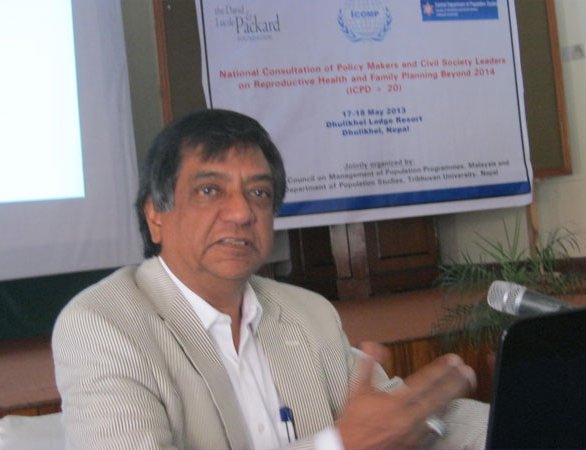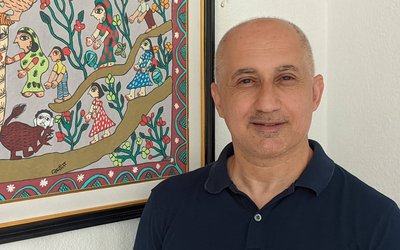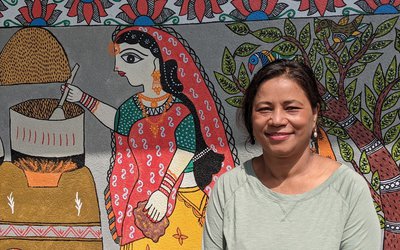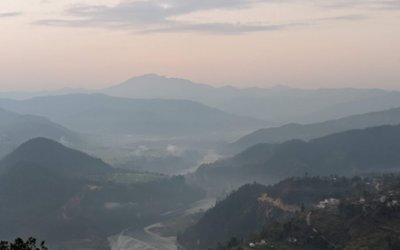
Dr. Wasim Zaman, Executive Director, of International Council on Management of Population Programs (ICOMP), was recently in Kathmandu to attend the Country Consultation of Policymakers and Civil Society Leaders towards ICPD Beyond 2014. The Central Department of Population Studies CDPS, Tribhuvan University, Nepal, organized the meet with in collaboration with ICOMP, under support from Packard Foundation. On the sidelines of the meeting, Dr. Zaman spoke to New Spotlight about the importance of the two-day workshop. Excerpts:
How do you look at the ICPD and its importance?
I think you heard this International Conference on Population and Development (ICPD) took place in Cairo in 1994 and its Plan of Action (POA) is going to be complete in 2014 after twenty years. The countries and regions, and the whole world, are now looking at what the next thing would be despite achieving a lot during the period. But, what are some key areas still needing more action like reproductive health, family planning and additional issues like migration, urbanization, poverty eradication and education? However, the crux of our purpose is reproductive health, family planning and young people's need and of course to some extent migration, urbanization and their implications for individuals and families. So what we do in each country is going through various processes and each of them are holding their own discussions and they are participating in regional discussions, ultimately leading towards special session of United Nations General Assembly, which will take place in September 2014.
What did you look at in consultation?
The consultation is basically looking at Nepal's success in the last two decades and what the gaps are there and what the challenges are and then setting and identifying what the key actions are that need to be taken in the areas where the challenges and gaps exist. So that is what this consultation is proposing and aspiring to do.
How do you evaluate the progress or achievement Nepal has made in the last two decades?
This particular meeting is focused on civil society, their leaders, parliamentarians and policy makers. So let us say it is a broader meeting so that views expressed by all of them here are noted. When the government sent their official delegation, it represented the official views in one way or the other. This particular meeting is to ensure that civil society organization, the young people, NGOs and academics that work on these issues, get together with parliamentarians and government officials. Since Nepal does not have a parliament, ex-parliamentarians, basically policy makers from political side, took part in the consultation meeting. They came together to share the status.
What is the status?
You may hear about the status report for Nepal in depth as further analysis is being made. What we have found is Nepal has made significant improvements and achievements during the last two decades, particularly in the last decade, despite Nepal's conflict and post conflict problems. In that process, Nepal has actually, from 1996, managed to reduce the maternal mortality rate from over 500 to a little bit below 200 right now. This is the major achievement, though it is still high.
How do you view the overall demographic scenario of Nepal?
In case of total fertility rate, it was 5.6 in 1996 and now it has come down to two point something. In the women empowerment area, poverty reduction, there is a certain improvement. Having said that, in each of these areas, Nepal still has huge challenges. Not only huge challenges but new issues are coming up. Aging for instance will come as people are living longer. So there will be more people of higher age group. If we look at the hill and talk about the environment, soil erosion is going to hit much of Nepal. The land use pattern is seriously affected by the growing population problem. Pollution is now a big issue. Again all these issues are related to population growth and dynamics.
What are your views on growing urbanization in Nepal?
Urbanization is going to be a major issue as people move for jobs in the urban areas because of better opportunity there and poverty in the rural areas. That will create huge problems in urban pocket areas like narrow and small valleys of Kathmandu. The focus in this meeting was on reproductive health, family planning and young people's needs. The issues like urbanization and poverty need to be dealt with in Nepal. Despite the progress, as ICPD's program of action is going to expire by 2014, Nepal could be doing so many things, but it should be concerned about the path they have to chart and to achieve MDG goals and to achieve ICPD goals and to make Nepal truly a happy and prosperous country.
- TANAHU HYDROPOWER PROEJCT: A Significant Achievement
- Apr 15, 2024
- AMBASSADOR HANAN GODAR: Sharing Pain With A Nepali Family
- Mar 30, 2024
- VISIT OF KfW AND EIB TO NEPAL : Mission Matters
- Mar 25, 2024
- NEPAL BRITAIN SOCIETY: Pratima Pande's Leadership
- Mar 24, 2024
- NEPAL ARMY DAY: Time To Recall Glory
- Mar 15, 2024
















